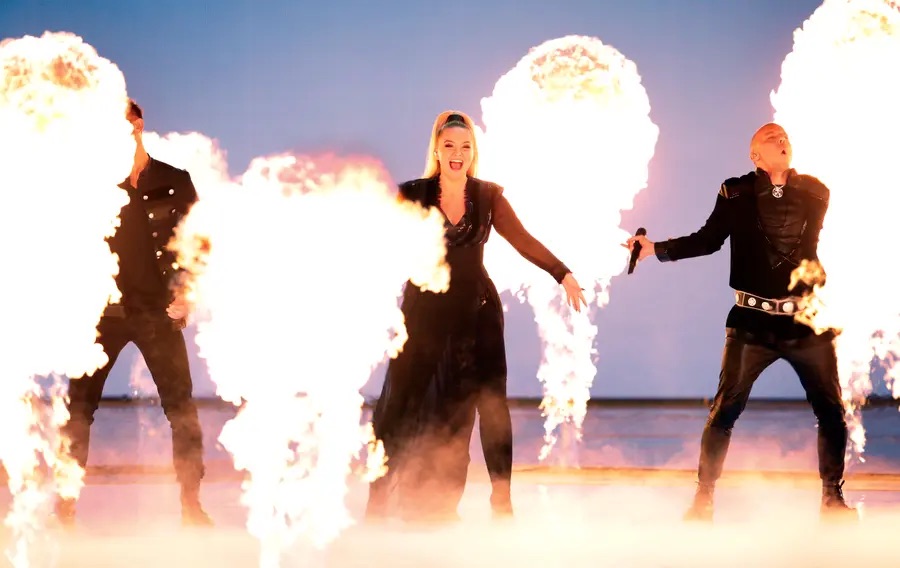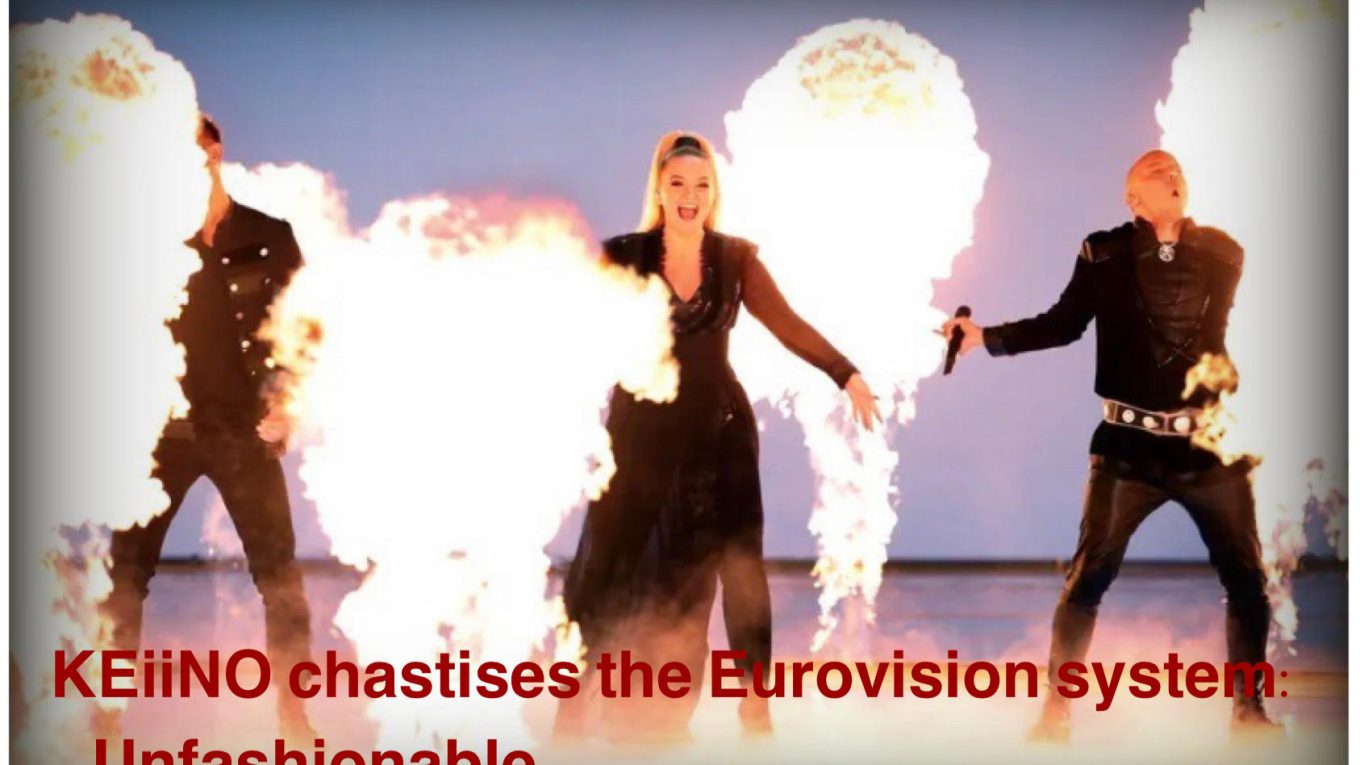Chastises the Eurovision jury system: − Unfashionable
In 2019, the Norwegian ESC finalists experienced the same thing as Finland’s Käärijä did on Sunday night: Won the people, but not the competition. Now they hope for change.
By Thomas Talseth, VG.no May 14th, 2023
Translated by Karina Brandt, May 15th 2023, KEiiNO NEWS

The historic winner of this year’s Eurovision, Sweden’s Loreen, had to deal with the audience in Liverpool singing the crowd favorite “Cha Cha Cha,” as her triumph was announced.
The reactions to the fact that Loreen’s “Tattoo” did not receive a single full score from any country’s TV viewers, while Käärijä’s song received 18 such, are enormous.
Now there is a conspiracy theory among Eurovision fans, mentioned by The Independent and NME among other things, that Loreen and Sweden’s victory was predetermined – in order to have the competition moved to Sweden in 2024, on the 50th anniversary of ABBA’s victory with “Waterloo”.
Sweden won as a result of great support from the professional juries of the participating countries.
– Obviously crazy for Loreen, says KEiiNO boss Tom Hugo Hermansen to VG, about the reaction in the hall.
– But I understand the audience’s frustration at feeling a bit overrun.
In 2019, the Norwegian trio and their contribution “Spirit In The Sky” also fared poorly in the vote collection, after the juries had had their say.
Then came the positive shock: The audience in Europe gave KEiiNO the most votes of all, in a highly dramatic TV moment.
But it did not last for more than sixth place overall.
– We share the view of many fans, that it is unfashionable that a committee consisting of five people should have as much power as millions of viewers, says Hermansen.
The EBU defends the scheme
The European Broadcasting Union (EBU) defends the controversial jury system.
– Changes to the voting system at the Eurovision Song Contest this year gave more power to the audience, who alone decided which songs would advance from the semi-finals, writes the EBU in an email to NTB.
NTB has asked the EBU several questions about the criticism, including whether they are considering making changes to the system for next year.
In its response, the EBU writes that several changes were made before this year’s final, precisely to give viewers more power. But the broadcasting union does not respond directly to the criticism.
– The juries in each of the 37 participating countries decided over 49.3 per cent of the points awarded, and the people’s votes accounted for 50.7 per cent, writes the EBU.
Hoping for a Swedish solution
Tom Hugo Hermansen in KEiiNO believes it is important for the competition to have a tool that ensures a diversity of artists and songs.
What the EBU is solving by adopting the voting system Sweden has had for a few years, he believes.
– Where the audience is divided into age categories. Because there may be some groups of viewers who are extra keen on voting, and then the total number of votes does not necessarily reflect what a representative sample of the people think.
If this is impossible, KEiiNO thinks in any case that the juries should be expanded, says Hermansen.
– So that you get a more nuanced result and avoid speculation about agreed game juries in between. If necessary, the people’s votes must count significantly more than the current 50 percent.
Hermansen emphasizes that KEiiNO thinks Loreen is a worthy winner – but also that both Finnish Käärijä and Norwegian Alessandra Mele would be.
And he hopes that the debate that is raging now, will lead to changes.
– I am quite sure that the EBU wants the best for the competition, says Hermansen.
– And that adjustments will be made next year, since SVT is most often in the driver’s seat when it comes to developing the concept.





